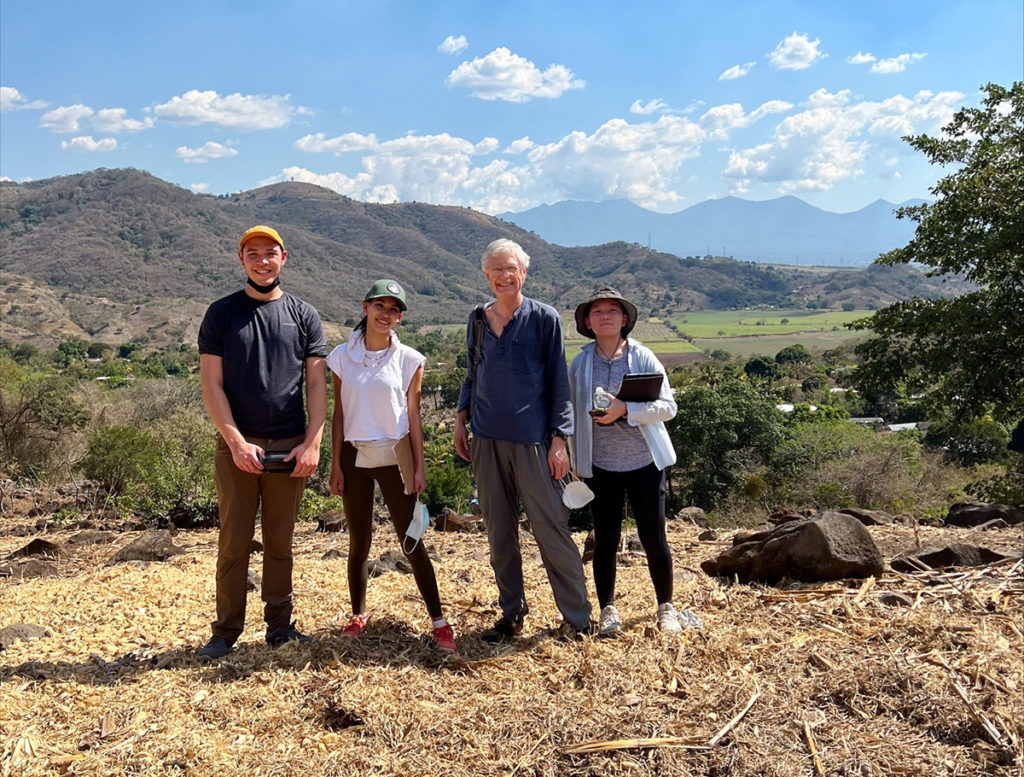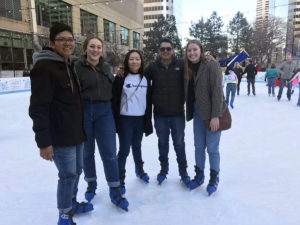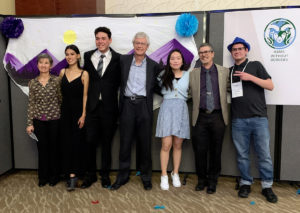
A project led by Colorado State University engineering students to help provide clean water to two communities in El Salvador is back on track following pandemic delays. Once completed, the residents of El Pital and Las Tablas will have easier access to potable water, thanks to a sustainable system designed by CSU engineering students.
Rams Without Borders, CSU’s student chapter of Engineers Without Borders, is overseeing the implementation of a project started by a senior design team in 2019.
“Working on this project has given me early, realistic insight into how an engineer works, and the importance of understanding the local culture, language and communication for an international project,” said Swee Suen Tee, Rams Without Borders project lead and Civil and Environmental Engineering student. “Strong teamwork is what brings everyone and everything together and makes this possible.”
Building relationships

In 2018, representatives of Las Tablas asked Rams Without Borders to design, fund and build a water system for the community. Senior design team Seniors Without Borders prepared a preliminary design in 2019, but neighboring community El Pital was concerned that their water needs were excluded from the proposal.
Members of the design team and Rams Without Borders visited the site in March 2019 and connected and collaborated with Salvadoran students from universities in Santa Ana and San Salvador, who conducted necessary hydrogeological and topographical analyses for the project. CSU students hosted some of these students during a visit to Fort Collins in January 2020.
The 2020 Seniors Without Borders design team developed a system that would satisfy both communities. Because of the pandemic, CSU students did not travel to El Salvador in 2020 or 2021, but they returned this year during spring break.
They met with each community’s leadership team, the local rotary club and four drilling companies to acquire bids for well drilling to begin this fall. They also presented an update on the project at an assembly attended by more than 120 community members, a large percentage of the population.
Bert Vermeulen, a teaching faculty member in the Walter Scott, Jr. College of Engineering and one of three Rams Without Borders advisers, was encouraged by the turnout. Vermeulen said both the communities and students have grown from overcoming the project’s challenges.
“There is a critical point in a project like this when students realize that it won’t happen unless they make it happen,” he said. “The role of the faculty advisers and other outside experts is to provide support, but the key driver is the students’ initiative. It is great to see what the students can do.”
Rams Without Borders adviser Andrea Purdy, an associate professor of Spanish, assists the team with language and cultural understanding.
“Projects such as these are very helpful in providing students with real hands-on experience and the opportunity to understand the importance of cultural understanding in carrying out international projects,” Purdy said. “The students are dedicated, hardworking and invested in the success of this project.”
Allies around the world

A $95,000 grant from Rotary International, facilitated by Fort Collins Breakfast Rotary Club member Joe McCarthy, will fund about half of the project’s capital expenses. The Japanese Embassy will pay for the tank and distribution system, and the local Salvadoran government also has contributed funding. Students have been raising additional funds for the project since 2019.
“There’s great alignment between RWB and Rotary in that we want the project to address a real, critical need for the community and the system will remain sustainably operational for many years through the proper training and support of the community to take it over and keep it running,” McCarthy said.
McCarthy raised funds from Rotary clubs around the U.S. and in El Salvador, India and France. He and his wife, Annie, traveled to El Salvador with the students in March.
“The chance to travel to El Salvador along with the students was a wonderful opportunity to get to know them better, and to better appreciate their commitment to the project,” he said.
A solid foundation
The El Pital-Las Tablas project is built on the foundation of a similar project in La Criba, El Salvador, where CSU engineering students designed and oversaw the installation of a new water system that has been operational for several years.
The team visited La Criba in March and received positive feedback from the community.
“They’re happy with the system and clean water they get every day,” Tee said. “That’s how we have built our reputation and the relationship in El Salvador.”
Chris Bareither, an associate professor of Civil and Environmental Engineering, has been a Rams Without Borders faculty adviser since 2013 and made four trips to La Criba. Bareither worked on an Engineers Without Borders project in El Salvador as a graduate student at the University of Wisconsin-Madison and wanted to stay involved when he joined the faculty at CSU.
“The gratification of helping others, the opportunity to travel to new places and meet new people, and the experience of developing bonds with Salvadorans is an invaluable experience that is life-changing for RWB students,” he said.
Other Rams Without Borders team members involved in the El Pital-Las Tablas project are Hope Carlson (a project lead), Emily Bobrick, Elliot Ferrell-Carretey, Saori Nishimura Garcia, Brennan Ackermann and Eduardo Malloy. Hydrogeologist Robert Sterrett has provided technical support for the project.